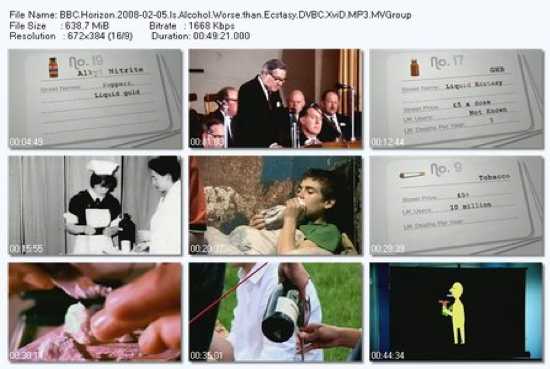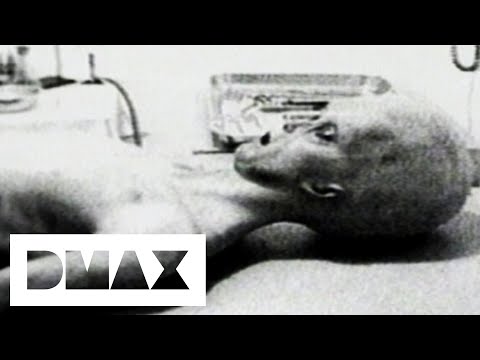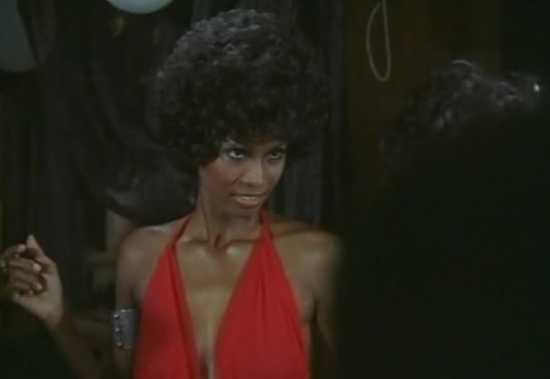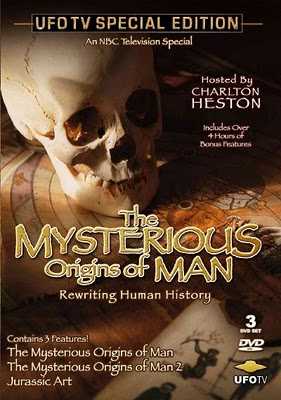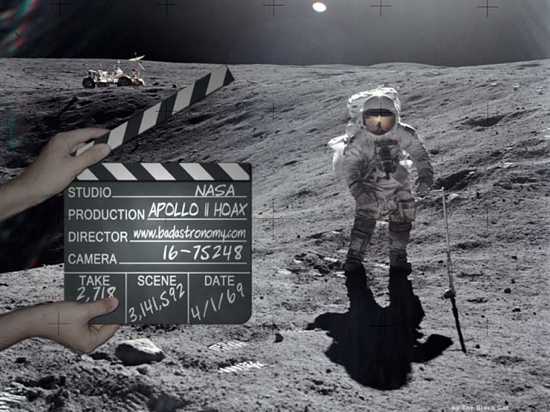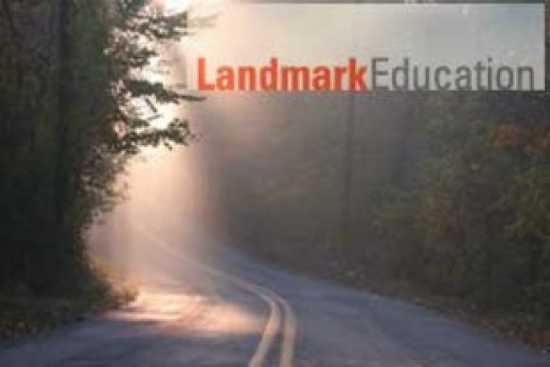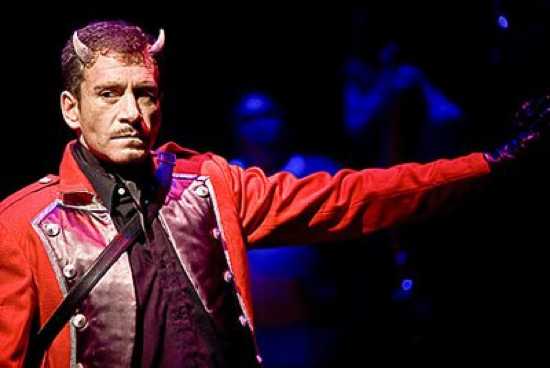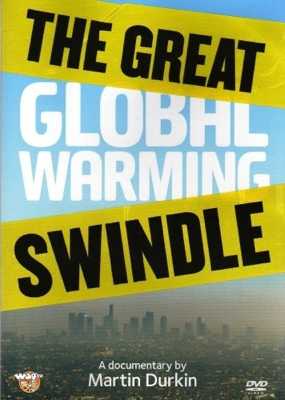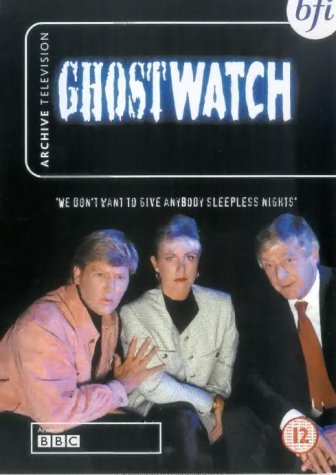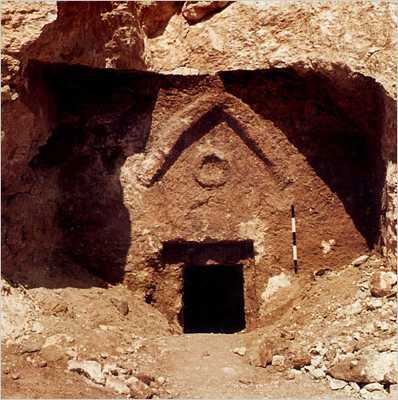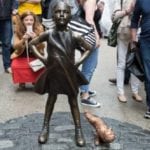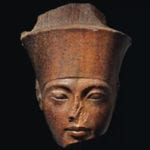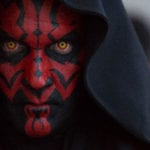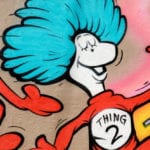Aired: February 5, 2008 In February of 2008, BBC Two aired a documentary based on a study by Professor David Nutt, a psycho-pharmacologist at Bristol University. Nutt and his team analyzed the negative effects caused by 20 common drugs. They asked a group of 29 consultant psychiatrists who specialize in addiction to rate the drugs in categories based on physical harm, addiction, and social disruption. They also extended the analysis to a group of 16 experts spanning several fields including pharmacology, police, chemistry, forensics, psychiatry, and legal services. The goal of the documentary was to examine how the brain and body react to specific drugs. It showed how each substance passes into the bloodstream and what the long-term effects of the drugs are relative to their current classification. The program raised questions over the current drug classification system used in the United Kingdom. According to the film, Britain’s most dangerous drugs are (starting at #20) Cathinone (Khat), Amyl nitrite (Poppers), MDMA/Ecstasy, GHB, Anabolic steroid, Methylphenidate (e.g. Ritalin), LSD/Acid, 4-MTA, Solvents, THC (Cannabis), Buprenophine hydrochloride, Nicotine (Tobacco), Amphetamine/Speed, Benzodiazepine (e.g. Valium), Ketamine, Alcohol, Methadone, Barbiturates, Cocaine/Crack cocaine, and #1 is Heroin. The most startling fact about the program is that alcohol, solvents, and tobacco (all unclassified drugs) are rated more dangerous than ecstasy, 4-MTA, and LSD (all class A drugs). The UK government’s top advisory committee members on drug classification were among the scientists involved in the study. Some people think the data recorded by Professor David Nutt should be used to help update drug classification rankings. The documentary presented the idea that the ABC drug classification system used in the UK is arbitrary.
Aired: August 28, 1995 In the early 1990s, a 17-minute, black-and-white film surfaced showing what was suggested to be an alien autopsy conducted near Roswell, New Mexico in 1947. The footage was originally promoted by Ray Santilli, a London-based entrepreneur, who claimed he had received it from an unidentified, former military cameraman. After the video became public, it was sold to a number of different television networks and broadcast in more than 32 countries. Fox television in the United States aired the footage under the title Alien Autopsy: Fact or Fiction. The TV special caused a sensation, with Time Magazine declaring that it sparked a debate “with intensity not lavished on any home movie since the Zapruder film.” Alien Autopsy: Fact or Fiction features interviews with Oscar-winning special effects make-up artist Stan Winston, cinematographer Allen Daviau, and noted forensic pathologist Cyril Wecht, who considered the autopsy procedures in the film to be authentic, but stopped short of declaring the being an alien. At the time it aired, the program was the highest-rated TV special in Fox history. In 2006, the alien autopsy footage was exposed as a hoax when Ray Santilli admitted it was staged. Santilli says the tape was “reconstructed” from a real alien autopsy he witnessed. He has suggested that a few frames from a genuine alien procedure were embedded into his film. In Alien Autopsy: Fact or Fiction, artifacts are featured which were supposedly recovered from the crash site. These objects include alien symbols and six-finger control panels. It has since been realized that all the items were fabricated by Ray Santilli and friends. However, the Fox program remains a controversial event in television history.
Aired: September 4, 1992 Australia’s Naughtiest Home Videos is a controversial Australian television comedy program which was broadcast on Nine Network in 1992. The program was a one-off special of Australia’s Funniest Home Video Show. It depicted videos of sexual situations and explicit content. The show gained notoriety for, as with the American TV show Turn-On, being taken off the air part-way through the broadcast of its first and only episode. The TV special was a collection of videos that were submitted to the producers of Australia’s Funniest Home Video Show, but originally deemed to explicit for television. Before the show aired, a short message was posted that warned the public of the content. The show was hosted by Australian celebrity Doug Mulray. During the broadcast, Mulray poked fun at the content of the videos, which he described as “The most sensational collection of home videos since Rodney King nicked out for a pizza recently.” Some of the videos included in the program were shots of animal genitalia, humans or animals engaging in sexual intercourse, and people who get humorously disrobed. In one clip, a little girl is filmed grabbing a kangaroo’s scrotum. Other video clips show a man lifting a barbell with his penis, a man getting his head squeezed between an erotic dancer’s large breasts, an elderly woman removing an envelope from a stripper’s undergarments with her dentures, two people running into water with flaming pieces of toilet paper hanging from their buttocks, and people filmed having sexual intercourse in the middle of a park. On the night of the broadcast, Kerry Packer, the owner of the Nine Network at the time, was informed of the show’s content by friends. He was so offended that he phoned the studio operators and shouted, “Get that stuff off the air!” Within minutes, the series was pulled. To viewers, the episode was suddenly interrupted by a Nine Network bumper with the following announcement: “We apologize for this interruption. Unfortunately, a technical problem prevents us continuing our scheduled program for the moment. In the meantime, we bring you a brief alternative program.” An episode of Cheers started after the announcement. Australia’s Naughtiest Home Videos ran for just 34 minutes of a scheduled 60-minute special. Despite Packer’s objections to the content, the show was popular among viewers. After the show was canceled, Nine reportedly received “thousands” of phone calls from viewers, with 65 percent of the callers upset it was pulled. Doug Mulray and many of the staff who were involved in the TV special were fired. Mulray was banned from Channel Nine for life. In 2008, a full copy of the show was located by Nine’s head of factual television. It was aired on August 28, 2008. The event was promoted as “the show Kerry Packer didn’t want you to see.”
Aired: 1999 Speculation about Nazism and the occult has been around since the late 1950s. A large number of documentaries, books, and television specials have been released that examine the topic. Hitler and the Occult is a 1999 TV documentary produced by Bram Roos and Phyllis Cannon for the History Channel. According to the program, the Nazi party grew out of several occult groups that sprang up in the late 19th century as a reaction to the materialism and technology of the era. It is suggested that Adolf Hitler developed the notion that he was chosen to save Germany. After Germany was defeated in World War I, the nation began to follow a nationalistic sentiment. Adolf Hitler used Christian symbols such as the Spear of Destiny and the Holy Grail. He adopted the swastika from Hinduism. The symbol of the swastika represents the Sun and the Wheel of Life turning. The swastika is also the symbol for peace and harmony, as in Buddhism, Jainism and Taoism. It decorates most Hindu homes and temples. Hitler and the Occult suggests that Adolf Hitler’s rise to power was the product of forces and events that connected him to the occult. In the conclusion, after the author Dusty Sklar has pointed out that Hitler’s suicide happened on April 30/May 1, which is Walpurgis Night, the narrator continues: “With Hitler gone it was as if a spell had been broken.” Hitler and the Occult includes a scene in which Hitler is seen speaking in front of a large crowd of people. Hitler’s speech is not translated, but the narrator discusses the life of German occultist Erik Jan Hanussen: “Occultists believe Hanussen may have imparted techniques of mind control and crowd domination on Hitler.” The final evidence presented in the documentary is that Joachim von Ribbentrop, Foreign Minister of Germany during World War II, continued his service to the Führer at the Nuremberg Trials. He said “Even with all I know, if Hitler should come to me and say “Do this,” I would still do it.” From the perspective of history, these documentaries about Nazism and the occult are seen as problematic because they do not contribute to an actual understanding of Nazism and Neo-Nazism. A historian named Mattias Gardell writes: In documentaries portraying the Third Reich, Hitler is cast as a master magician. These programs typically include scenes in which Hitler is screaming with regiments marching under the sign of the swastika. Instead of providing a translation of his verbal crescendos, the sequence is overlaid. This helps demonize Hitler as an evil wizard who transformed the German people into zombified servants. The footage is presented as if no German Nazis were left among the populace after the war. The truth is that millions of ordinary German workers, farmers and businessmen supported the national socialist program.
Aired: February 5, 1969 Turn-On was an American sketch comedy series that aired on ABC in February 1969. Only one episode was broadcast and the show is considered one of the most infamous flops in TV history. The program was created by Ed Friendly and George Schlatter, the producers of Laugh-In. Some distinguishing characteristics of the show were its use of the Moog synthesizer and lack of sets, except for a white backdrop. Unlike Laugh-In, the show “focused almost exclusively on sex as a comedic subject” using various rapid-fire jokes, but no laugh track. Among the cast for the episode were Teresa Graves and Chuck McCann. The writing staff included a young Albert Brooks and the guest host for the episode was Tim Conway, known for his long run on The Carol Burnett Show. Turn-On was canceled midway through its only episode. After the event, Cleveland’s WEWS sent ABC network an angry telegram: “If your naughty little boys have to write dirty words on the walls, please don’t use our walls.” It was reported that ABC received 369 calls of complaint during the show, compared to 20 supporting it. In 1969, the action was enough to jam the switchboard at several ABC station affiliates. The show contained some controversial material. Some of the skits included are: A firing squad prepares to shoot an attractive woman when the squad leader says, “Excuse me, miss, but in this case we are the ones with the final request.” Conway wonders if McGiveney is a “pot-smoking, jaded, wild-eyed, radical dropout.” When she says she is, he replies, “I love you!” A sleazy TV pitchman (Robert Staats) promotes a breakfast cereal soaked in mescaline. The same pitchman appears in a second spoof commercial where he is selling women’s shoes. In the skit it is revealed that the salesman has a foot fetish. In one scene, a diagram of a swastika is displayed as a narrator says, “You are now looking at the table at the Paris peace accords agreed to by General Ky” (Chief of the Vietnam Air Force). A pregnant woman sings “I Got Rhythm,” which is alluding to the rhythm method of birth control. A vending machine dispenses the birth control pill, with an anxious young woman putting coins into it and then feverishly shaking the broken machine. A figure of a draft-dodger is shown holding a sign reading “Sweden.” A black man, face-to-face with a white man, says, “Mom always did like you best!” A sequence is run with the word sex flashing on and off in pulsating colors while Conway and Bonnie Boland leer at each other. Various stock photographs are displayed during the leer, including one of Pope Paul VI. Two men are standing at a globe. “Tell me,” one says to the other, “where is the capital of South Vietnam?” The second man spins the globe and points, “Mostly over here, in Swiss bank accounts.” Because of the reaction to the program, ABC became more cautious about airing controversial shows, and thus rejected a pilot by Norman Lear starring a “foul-mouthed, bigoted lead” character. CBS liked it and began airing All in the Family in 1971.
Aired: February 25, 1996 In 1996, NBC aired a one-hour primetime special, The Mysterious Origins of Man, hosted by Charlton Heston. The documentary presents a series of interviews that challenge the accepted theory of human history and evolution. Rather than being an objective program on the origin of Homo sapiens, the show promotes many unfounded and pseudoscientific claims. It argues that mankind has existed on the Earth for tens of millions of years, and that mainstream scientists have suppressed fossil evidence. Some of the material used was based on the controversial book Forbidden Archeology, written by Michael Cremo and Richard L. Thompson about the Klerksdorp spheres and other alleged out-of-place artifacts. The show claims that humans and dinosaurs lived together. It uses three items of evidence that were said to have been discovered in the Paluxy Riverbed near Glen Rose, Texas, which is a famous archeological site. At Paluxy, many fossil dinosaur tracks have been unearthed. The items highlighted in the program were the Burdick Print, a supposed giant human track, a photo that shows a striding trail of human tracks in the riverbed, and an alleged fossilized human finger. The show promotes many controversial claims, including the Calavaras skull, which is purported to prove that humans, mastodons, and elephants coexisted in California. The Mysterious Origins of Man alleges that a collection of remains discovered off the coast of New Zealand by a Japanese trawler on April 25, 1977, was a plesiosaur (prehistoric marine reptile). The discovery was named the Zuiyo-maru carcass. The body was brought to the surface of the ocean after it became entangled in the ship’s nets at a depth of about 300 meters (almost 1000 feet). The carcass weighed about 4000 pounds and measured 10 meters (about 33 feet). The program suggests only “skeptics” believe the carcass was a basking shark. The television special includes interviews with creationist Carl Baugh on the Paluxy tracks, Richard Milton, an expert on Lucy (Australopithecus), Neil Steede on the Incan ruins, and Graham Hancock on Atlantis. After being broadcast on primetime TV, the show was widely criticized by the scientific community. Donald Johanson said it was “absolutely shameful and set us back 100 years.” The program prompted a hailstorm of criticism from the public, many of whom sent in letters and messages pointing out the erroneous claims. The controversy did not prevent NBC from rebroadcasting the TV special on June 8, 1996.
Aired: February 15, 2001 In early 2001, the Fox television network aired a program titled Conspiracy Theory: Did We Land on the Moon? The TV special presented a collection of interviews with some of the most prominent moon-landing hoax writers in the world, including Bill Kaysing, who is the man who initiated the hoax movement. The show features the work of Ralph Rene, David Percy, and Bart Sibrel. It ultimately concludes that NASA faked the moon-landings. The hoax theory has been around for several years. However, the show was the first time the information had been presented to such a wide audience. The program was viewed by approximately 15 million Americans. Some of the theories discussed include the physical problems inherent in 1969 rocket control technology, the lack of a blast crater on the Moon under the LM descent engine, the lack of stars in the lunar sky behind the astronauts, discrepancies in the shadows and backgrounds of moon photos, the flag waving on an airless moon, and the presence of deadly radiation in interplanetary space. The program contends that astronauts have never flown beyond the Van Allen radiation belt. In the TV special, Bill Kaysing is quoted as saying “the chance of a successful landing on the Moon was calculated to be 0.0017% (1 in 60,000).” The source of this information appears to be a report prepared by the Rocketdyne Company in the late 1950s, based on the understanding of technology at the time. After the TV special aired on Fox, the company received a large collection of complaints and telephone calls demanding more information on the subject. Despite the sloppy research, scientific inaccuracies and erroneous conclusions, people began to believe the conclusion. In 1999, a Gallup poll found that 6% of the Americans surveyed doubted that the moon-landings happened and that 5% of those surveyed had no opinion. Officials at Fox television stated that such skepticism increased to about 20% after the February 2001 airing of the network’s TV show Conspiracy Theory: Did We Land on the Moon? There are subcultures around the world that advocate the belief that the moon-landings were faked. James Oberg of ABC News stated that these claims are actively taught in Cuban schools and wherever Cuban teachers are sent. Shortly after the program was broadcast, the company aired another TV special which refuted most of the hoax claims.
Aired: May 24, 2004 Voyage au pays des nouveaux gourous, also known as Inside Landmark Forum, was an hour-long French exposé documentary on Landmark Education (which borrows a considerable amount of its philosophy from Scientology). The program was made in 2003 by the investigative journalism program Pieces a Conviction. It was broadcast in France on the channel France 3. Landmark Education LLC (LE) is a prominent personal training and development company which offers educational programs in approximately 115 locations in more than 20 countries worldwide. Over 1.2 million people have enrolled in Landmark’s programs. Some observers have questioned whether the course is beneficial. Some articles have alleged that the company is “cult-like.” Landmark rejects the cult label and “freely threatens or pursues lawsuits against those who call it one.” Since 1991, the company has been involved in about a dozen lawsuits in the United States and a few more in Europe. The documentary is critical of the Landmark program and includes hidden camera footage from inside a Forum event in France, as well as within the Landmark offices. It includes a panel discussion and interviews with a variety of people who talk about whether or not Landmark is a cult. According to Landmark Education the “broadcasting of this program had disastrous consequences and resulted in considerable damage to Landmark Education’s subsidiary operating in France.” In the documentary, Jean-Pierre Jougla, who works as a solicitor with the Court of Appeal in Montpellier, France, said the forum makes it “impossible to leave.” He went on to describe “mental manipulation” and stated that people can be brainwashed through methods that seem harmless. In the aftermath of the broadcast, a statement showed that France 3 preferred to risk a small fine for a violation of the media’s code of ethics rather than not air the program. In Landmark Education’s reply to France 3’s documentary, a woman, after having seen the program, complained “My face is hidden, but my voice is not masked. I feel betrayed by this journalist who did not respect the necessary confidentiality in this broadcast.”
Aired: January 8, 2005 Jerry Springer: The Opera is a British musical written by Richard Thomas and Stewart Lee. It is based on the television program The Jerry Springer Show. The musical is notable for its profanity and treatment of Judeo-Christian themes. It uses a collection of surreal images, such as a troupe of tap-dancing Ku Klux Klan members. The show is completely sung through, with the exceptions of the title character, Jerry, who speaks, and a brief speech by the character Steve. The show ran for 609 performances in London from April 2003 to February 2005 before touring the UK in 2006. Jerry Springer: The Opera was subject to controversy beginning in January 2005, when BBC Two decided to broadcast a TV special of the show. The decision elicited 55,000 angry calls to the station. The majority of the complaints came the day before the broadcast. In the days surrounding the TV special, the organization Christian Voice led street protests against the screening at nine separate BBC offices and announced their intention to bring blasphemy charges, due to the depictions of Jesus and other Judeo-Christian characters in Act II. The creators say the scene is presented as a fantasy in the mind of the dying central character and is not intended to be a serious comment on Christian theology. In November 2005, a DVD of the TV special was made available in the UK. However, because of complaints by customers, Sainsbury’s and Woolworths decided to stop selling it. The musical is noted for its bad language. It has been accused of including 8,000 obscenities. This however is impossible, as 8,000 obscenities over the show’s 120 minute runtime would mean that there is 66 obscenities every minute. According to director Stewart Lee, there are 174 swear words in the show.
Aired: March 8, 2007 The Great Global Warming Swindle is a television program that was broadcast in March of 2007 on Channel 4 in the United Kingdom. The film was made by British television producer Martin Durkin and presents scientists, economists, politicians, writers, and others who dispute the scientific consensus regarding the human impact on global warming. The advertising campaign for the documentary asserted that man-made global warming is “a lie” and “the biggest scam of modern times.” Channel 4 described the film as “a polemic (controversial debate) that drew together the well-documented views of a number of respected scientists to reach the same conclusion.” The documentary was welcomed by the growing collection of global warming skeptics, but widely criticized by scientific organizations. The program asserts that the scientific consensus on global warming is driven by the desire to obtain research funding. Other culprits, according to the film, are Western environmentalists promoting expensive solar and wind power over cheap fossil fuels in Africa, resulting in African countries being held back from industrialization. The documentary highlights a number of contradictions and inconsistencies in the evidence supporting man-made global warming. It asserts that records of atmospheric CO2 levels since 1940 show a continuing increase. However during this period, global temperatures decreased until 1975. According to the film, water vapor makes up 95% of all greenhouse gases and has the largest impact on the planet’s temperature. More specifically, water particles in the form of clouds act to reflect incoming solar heat. This idea was examined in the controversial TV special titled The Cloud Mystery. The program states that carbon dioxide comprises only a very minuscule amount (just 0.054%) of the Earth’s atmosphere. According to the documentary, human activity contributes to less than 1% of that. The show highlights the solar variation theory of global warming, asserting that solar activity is currently at an extremely high level. It suggests that solar activity is directly linked to changes in global temperature. The documentary asserts that the current episode of global warming is nothing unusual. It attracted 2.5 million viewers for Channel 4 and an audience share of 11.5%. The British broadcasting regulator, the Office of Communications (Ofcom), received 265 complaints about the show, one of which was a 176-page detailed document co-authored by a group of scientists. Ofcom ruled on July 21, 2008, that the program had unfairly treated Sir David King, the IPCC, and Professor Carl Wunsch. Ofcom also found that part 5 of the show had breached several parts of the Broadcasting Code regarding impartiality.
Aired: August 21-23, 2007 God’s Warriors is a three-part CNN TV documentary that was produced by Christiane Amanpour in which she examines the rise of religious fundamentalism as a political force in the world. The program was filmed in the United States, Europe and the Middle East. It focuses on the three major monotheistic religions of the world, Judaism, Christianity, and Islam. The first part of the show describes the Jewish settlement movement in Israel and the United States fundraising that supports it. The second part of the series presents issues of radical Islam and Sharia law, while the final segment focuses on the United States and the political influence of Christian religious leaders. For the documentary, Amanpour reports that during the last 30 years, each faith has exploded into a powerful political force. “There are millions of people around the world who feel that their faith is being ignored, pushed aside, and they are certain they know how to make the world right. We cannot and should not ignore them.” The first part of the program covers a Jewish group that planned to blow up the Dome of the Rock in Jerusalem, in order to sabotage Israeli-Egyptian peace talks. It examines the Jewish extremist Yigal Amir, who assassinated Israeli Prime Minister Yitzak Rabin. It also covers Christian Zionists in America and the pro-Israel lobby’s clout in Washington that has supposedly helped religious settlers remain in the West Bank. The second part of the documentary covers the story of activist Ayaan Hirsi Ali, as well as Ed Husain, who is a young Muslim who describes himself as having been radicalized as a youth to accept an extremist Islamist ideology. The final part of the show reports on evangelicals trying to influence American politics and society from a faith-based perspective. The program covers Rev. Jerry Falwell and his organization the Moral Majority. The TV special sparked controversy around the world and various organizations released statements. Fr. Jonathan Morris said “I think this documentary comes up very stale.” It presents inappropriate accusations that religion is the real cause of all evil in this world. Christiane Amanpour said the documentary is not meant to compare religions, but rather to show “that each faith has their committed and fervent believers, and how they are active in the political sphere.”
Aired: March 6, 2005 X-Rated: The TV They Tried to Ban is a 2005 British one-off television documentary that examines controversial material on television. It was broadcast on Channel 4 in March of 2005. The program highlights examples of offensive language, sexually explicit content and disturbing images on television. It shows instances where TV caused controversy. By including these incidents, as well as some scenes that were previously unreleased on television, the show itself became notable as one of the most explicit programs in British television history. The TV They Tried to Ban is mainly light-hearted in its tone and narration, and implicitly suggests that “complainers” should not be so shocked by television programs and should simply choose not to watch. The first part of the program examines the use of offensive language on British television, including the 1976 live interview with the punk band the Sex Pistols on Bill Grundy’s Today show on Thames Television, which included swearing rarely before heard on television. The documentary shows how accepted the “f-word” has become on British television, by pointing out that celebrity chef Gordon Ramsay said it 84 times in a single episode of Ramsay’s Kitchen Nightmares. The theme song used in the program was The Hives’ “Hate to Say I Told You So.” The second part of the show talks about the portrayal of sex on television in Britain. The documentary claims that Margaret Thatcher’s 1979 rise to power, shortly after which the Conservative government created Channel 4, actually unleashed “a tide of filth” and “morally objectionable” content. The program mentions specific television shows and controversial scenes. It examines a suggestive sex scene in Footballers’ Wives that is used to examine gay sex on British TV. Other controversial broadcasts that are examined include Channel 4’s Animal Passions, about a group of animal-lovers in the United States, and a documentary about Derek Jarman’s 1976 film Sebastiane. Toward the end of the program, the “top three most offensive British TV moments” are revealed. The #1 moment is Jerry Springer: The Opera, while #2 is a Brass Eye Special on pedophilia and #3 is a Derren Brown show titled Séance. The documentary concludes by asking “where can controversial TV go next?” After the show was aired it sparked controversy in the British media. Some felt it was an attempt by Channel 4 to “overstate its own importance or bravery by showing daring material on television.”
Aired: November 2003 The Origins of AIDS is a controversial documentary that presents a brief history on the HIV virus and then examines the OPV AIDS hypothesis, which states that HIV may have been caused by a mass vaccination against Polio in Congo between 1957 and 1960. The program suggests that the cause of HIV is live polio vaccines. It discusses the fact that certain vaccines created to fight polio were prepared in chimpanzee tissue cultures and grown on monkey kidneys. The vaccines were then administered to up to one million African citizens. The documentary claims that the chimpanzee tissue may have been contaminated with the Simian immunodeficiency virus and then transferred as HIV into the human population. The show provides interviews with nurses and workers, video footage, and research experiments to back up the claims. It examines the monkey virus, SV-40, which is known to have been passed to humans through polio vaccines. The earliest known cases of AIDS occurred in central Africa, in the same regions where the polio vaccine was administered in the late 1950s. The OPV AIDS hypothesis has been examined and criticized by members of the scientific and medical communities. A collection of magazines, including the journal Nature, have presented articles claiming the theory has been refuted using molecular biological studies demonstrating the origins of HIV as a mutated variant of simian immunodeficiency virus (SIV). One of the leading supporters of the OPV AIDS hypothesis is a man named Edward Hooper. Hooper agrees that HIV can be traced back to retroviruses found in certain species of African apes and monkeys, but disagrees on how the virus suddenly transferred to the human population. The TV special has helped spread the OPV-AIDS hypothesis. In response, it has noticeably disrupted the longstanding effort of the WHO and UN to achieve poliomyelitis eradication worldwide through the use of the oral polio vaccine of Albert Sabin. The vaccines are thought to be safe and effective by virtually all medical authorities. At last count, The Origins of AIDS has been broadcast in twenty different countries worldwide. The major exception is in the UK. The documentary has also won a collection of scientific film awards. However, it remains a highly controversial piece of work. In 2005, a DVD of the program was set to be released, but was canceled.
Aired: October 31, 1992 On Halloween 1992, BBC1 showed a 90-minute TV horror film named Ghostwatch. The movie is shot in documentary style and the narrative is presented as a live television broadcast. The actors used in the program are actual BBC personalities who perform a live, on-air investigation of a house in Northolt, Greater London where poltergeist activity is believed to be taking place. Sarah Greene and Craig Charles, both real television regulars, are the reporters in the film. Mike Smith (Greene’s real-life husband) and Michael Parkinson link from the studio. During the film, Greene and Charles present video footage and interviews with people living near a house that is claimed to be haunted. They discover the existence of a malevolent ghost nicknamed Pipes, who has the habit of knocking on house plumbing. As the program proceeds, viewers learn that Pipes is the spirit of a psychologically disturbed man named Raymond Tunstall. At the conclusion of the film, the spirit unleashes an immense power, killing Sarah Greene and escaping. It then begins to escalate its poltergeist activity throughout the UK, taking control of the BBC studios and transmitter network. The spirit possesses Michael Parkinson in a chilling scene. The makers of Ghostwatch used many examples of paranormal phenomena in the movie. The ghost is visible for a fraction of a second in many clips, which is an effective and scary technique. During the course of the program there are many references to characters being possessed by a ghost who, whilst doing so, maniacally recites nursery rhymes. The ghost of the story is only heard to speak through the voices of others. However, the disembodied sound of cats is played whenever a phenomenon is taking place. The story was based on the tale of the Enfield Poltergeist. The movie was put into production months before it aired and was complete fiction. However, the realistic elements suggested to a casual viewer that it was an actual documentary. Much of the British public believed the events were true. Ghostwatch received a huge audience and an estimated 30,000 callers phoned the BBC switchboard to inquire about the show within a single hour. Due to this response, Ghostwatch is now widely considered one of the most controversial British television events of all time. The BBC placed a decade-long ban on the program. It remains unlikely that it will ever be shown again on British terrestrial television.
Aired: March 4, 2007 The Lost Tomb of Jesus is a documentary co-produced and first broadcast on the Discovery Channel and Vision TV in Canada on March 4, 2007. The show covers the discovery of the Talpiot tomb. It is directed by Canadian documentary and film maker Simcha Jacobovici. The executive producer of the TV special is James Cameron of Titanic fame. The film was released in conjunction with a book about the same subject, The Jesus Family Tomb, issued in late February 2007 and co-authored by Jacobovici and Charles R. Pellegrino. The documentary created intense controversy within the archaeological world. It upset many linguistic and biblical scholars, and sparked intense debate on the Internet. The Lost Tomb of Jesus suggests that the Talpiot tomb is the family burial place of Jesus of Nazareth, as well as several other figures from the New Testament. The Talpiot tomb is a rock-cut structure discovered in 1980 in East Talpiot, five kilometers south of the Old City in East Jerusalem. The tomb contains ten ossuaries, six of them with epigraphs, including one with the inscription that was interpreted in the program as “Jesus, son of Joseph.” The Talpiot tomb has yielded various human remains and several carvings. Of the ten ossuaries or stone coffins found inside the tomb, six bore the inscriptions: Jesus, son of Joseph, Mariamene, Joseph, Matthew, and Judah, son of Jesus. According to the documentary, four leading epigraphers have corroborated the ossuary inscriptions. The film claims that the tenth ossuary, which went missing years ago, is the James Ossuary purported to contain the body of James, the brother of Jesus. It suggests that Jesus’ body was secretly buried by his closest disciples and family, left to decompose and reburied a year later, according to Jewish custom. The show says that these types of ossuaries were used for about 100 years ending in 70 AD, so they date to the time of Jesus. According to the film, the main piece of evidence that ties the ossuaries to Jesus’ family is the Mary ossuary, inscribed “Mariamene e Mara.” Mara can mean lord or master, or it can be a nickname for Mary. The show argues that Mariamene is what Mary Magdalene was called based on the Acts of Phillip, 4th century Gnostic writings. The program says that if the remains discovered in the ossuary are that of Mary Magdalene, the odds are 1 in 600 that the tomb is not that of Jesus. Unfortunately, there are no bones left from the archeological discovery. They were buried shortly after the ossuaries were found. The creators of the documentary took biological residue from inside the boxes of Jesus and Mara and sent them for DNA testing. The only result was mitochondrial DNA, which demonstrates maternal relationships, not paternal. The test came back negative for the two samples, so the program claims that Jesus and Mary must have been married, as only family members are buried together. The show denies that the discovery contradicts key teachings of Christianity, such as the resurrection and ascension. The film’s religious consultant James Tabor stated that the fact that Jesus’ tomb was discovered does not put in doubt biblical accounts of his resurrection, which could have been spiritual. The prominent Israeli archaeologist Amos Kloner said James Cameron was trying to “make a profit by attacking a central tenet of the Christian faith.”
Released: January 1, 1943 Der Fuehrer’s Face is a 1943 animated cartoon by the Walt Disney Studios, starring Donald Duck. It was directed by Jack Kinney and released on January 1, 1943 as an anti-Nazi propaganda movie for the American war effort. The film won the 1943 Academy Award for Best Animated Short Film, and was the only Donald Duck cartoon to win an Oscar. In 1994, it was voted #22 of the 50 Greatest Cartoons of all time by members of the animation field. Due to the propagandistic nature of the short, and the depiction of Donald Duck as a Nazi (albeit a reluctant one), Disney kept it out of general circulation after its original release. Since 1943, the cartoon has been recognized as one of Disney’s most controversial creations. The cartoon begins with a collection of Axis leaders marching through a small German town, where everything, even the clouds and trees, are shaped as swastikas. The men are singing the virtues of the Nazi doctrine. As they pass by Donald’s house, the group gets him out of bed. Because of wartime rationing, Donald’s breakfast consists of a piece of wood shaped like a loaf of bread, coffee brewed from a single hoarded coffee bean, and an aromatic spray that tastes like bacon and eggs. Upon arriving at the factory, Donald starts a 48-hour daily shift screwing caps onto artillery shells in an assembly line. Mixed in with the shells are portraits of the Führer, so Donald must perform the Hitler salute every time a portrait appears. While performing his job, Donald is bombarded with propaganda messages about the superiority of the Aryan race and the glory of working for the Fuehrer. He soon has a nervous breakdown and experiences hallucinations of artillery shells falling everywhere. When the hallucinations clear, Donald finds himself in his bed, in the United States, and realizes the whole experience was a nightmare. He embraces a miniature Statue of Liberty and is thankful for his American citizenship. Der Fuehrer’s Face has been added as a bonus selection because it doesn’t necessarily quality as a TV special, but was rather an animated short.
